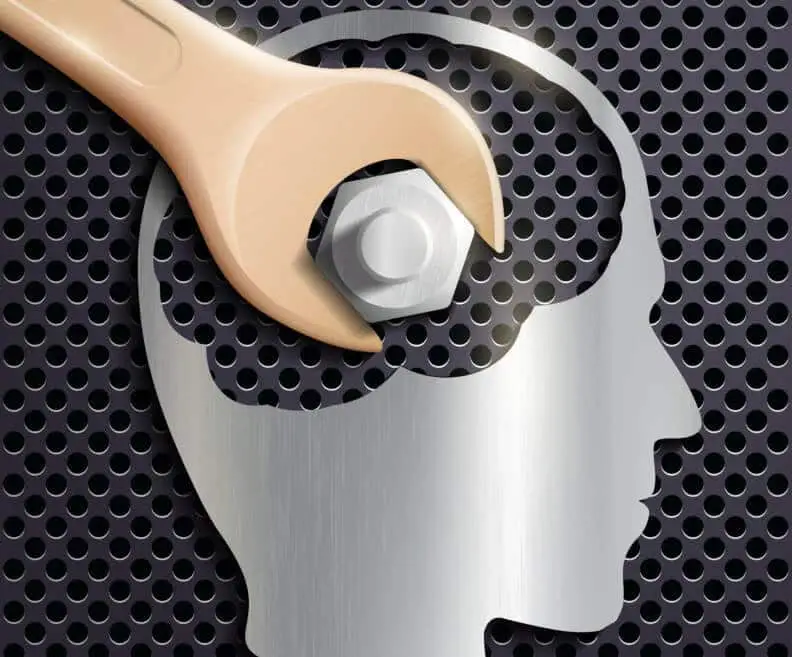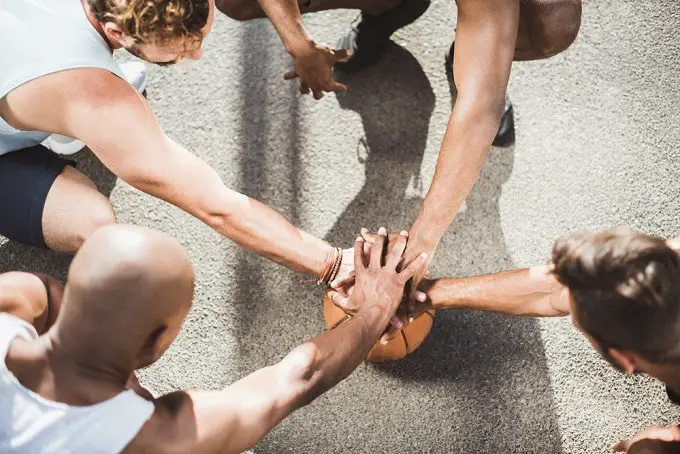Table of Contents
*This post may contain affiliate links. As an Amazon Associate we earn from qualifying purchases.
Neuro-linguistic programming is a powerful way to improve sports performance. Despite the technical sounding name, many NLP techniques are easy to understand and implement. Some can be done in just a few seconds. Neuro-linguistic programming is based on the belief that behavioral patterns, language, and neurological processes are connected.
By adjusting these factors, one can achieve a particular goal in life. Below we have outlined seven of the best neuro-linguistic programming techniques for improving sports performance.
1. Content Reframing

One of the fastest and easiest NLP techniques that can improve sports performance is content reframing. Whenever a bad situation happens, think of it from different, more positive perspectives. For example, if a soccer player breaks his leg and must sit out for several weeks, he could reframe it by viewing the situation as a chance to spend more time with family, start a side business he had been thinking about, or study the sport to become better. Even in less serious instances, content reframing is a helpful technique.
2. Dissociate Negative Feelings
NLP practitioners often use dissociation to help people prevent negative emotions from controlling them. To dissociate, one must first identify the negative emotion. Are you feeling sad, angry, annoyed, stressed, or something else? Then, imagine the event occurring from the perspective of an observer. Envision it happening backwards, then forwards, and backwards once more. Next, one must imagine a funny soundtrack while playing the mental movie backwards 3-4 more times. This process diminishes the intensity of one’s emotion and the attachment one feels to how upset they are over a situation.
Check that the process worked by running through the event again in your mind. If the emotions one feels is still too overwhelming, they may need to repeat the process. Dissociation is one of the most helpful NLP techniques for athletes. There will be fouls and other unfair events that occur in sports. Dissociation helps the athlete remain in control of themselves and maintain focus on the game.
3. Anchor Positive Emotions That Help Improve Sports Performance
Several NLP techniques can help one feel a positive emotion on demand. Negative emotions like frustration, disappointment, and worry tend to negatively impact an athlete’s performance. Anchoring is a fast, effective NLP technique for causing oneself to feel a desired emotion. Examples of emotions an athlete may want to feel on demand include confidence, calmness, and perseverance.
Anchoring works by connecting a certain positive emotional response to a phrase or gesture. Whenever the athlete is feeling low, they can activate the positive emotional response through the phrase or gesture. To anchor an emotion, first choose an emotion you want to feel. Recall a time you felt that emotion strongly. Once you’re feeling the emotion, say the anchoring phrase or do the anchoring gesture. A phrase could be “I am confident,” and an example of a gesture is pinching the area between your thumb and index finger. This process needs to be repeated every day until the anchoring phrase or gesture triggers the desired emotion.
4. Become Closer to Teammates Through Establishing Rapport

For athletes that are part of a team, teamwork is essential for succeeding. There are several neuro-linguistic programming techniques that players can use to improve teamwork and thus their sports performance. For instance, while talking with a teammate, an athlete can observe the other person’s breathing and match it. Breathing in sync with someone else assists with amiability.
5. Affirmations for Belief Change
Everyone has limiting beliefs that hold them back. Many of these limiting beliefs stem from childhood traumas and bad experiences. One can improve their sports performance by identifying limiting beliefs and changing them to supportive beliefs. With NLP, one can change beliefs by listing positive facts about the situation and stating an affirmation each day that supports a new belief. Examples of affirmations include:
- I am dedicated to my training.
- I run fast.
- My endurance is high.
- I have an accurate shot.
- I stay calm under pressure.
6. Ask Well-Formed Outcomes Questions
Well-formed outcomes questions is one of the best NLP techniques for accomplishing goals. They work well to support the achievement of SMART goals. Asking oneself well-formed outcomes questions helps one create more meaningful outcomes from their sports accomplishments. The questions improve clarity on what the athlete wants and how they will define success of that goal. Examples of well-formed outcomes questions one can ask to improve sports performance are:
- What do you want?
- What will you feel, see, and hear when you accomplish that goal?
- How will you know when you have achieved the goal?
- When, where, and with whom do you want it?
- How will it benefit you?
- How will accomplishing the goal affect other areas of your life?
- What resources do you need to accomplish the goal?
7. Visualize
A popular technique, visualization is another helpful tool in improving sports performance. Visualization involves mentally rehearsing a process or an upcoming event. One can imagine hitting a home run or winning an important game. Visualizing yourself making slam dunks, hitting home runs, and dribbling expertly help you improve your sports performance. Some scientific studies have found this to be true.
The more details you add to the visualization, the better it works. Remember to include smells, tastes, colors, and brightness in your visualizations. Another way to increase the effectiveness of visualization is to regularly do it.
Final Thoughts
The seven NLP techniques listed above can help any athlete improve their sports performance. They even work in other areas of your life. Most of these techniques are easy to implement. The trick is to perform them consistently. Just as one becomes a better player through practice, their minds become stronger through repetition as well.
Have you tried any of these NLP techniques before? Let us know what worked for you in the comments below.
Image Source: 1, 2
